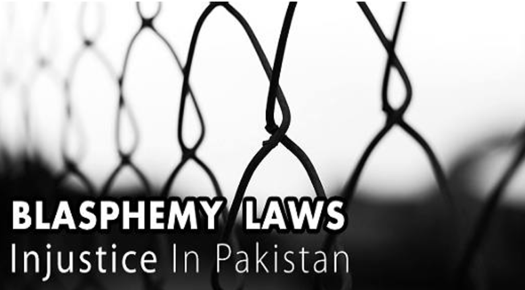
The offences relating to religion were first codified by India's British rulers in 1860, and were expanded in 1927. Pakistan inherited these laws when it came into existence after the partition of India in 1947. From 1987 to 2014, over 1,300 people have been accused of blasphemy; Muslims constitute the majority of those booked under these laws.
In a lengthy 116-page order, Justice Shaukat Aziz Siddiqui suggested that parliament amend the law to require the same punishment of the death penalty for those who falsely allege blasphemy as for those who commit the crime. “Currently, there is a very minor punishment for falsely accusing someone of blasphemy,” the judgment said. In late January, Pakistan's Senate officially took up the issue of the law's potential misuse for the first time in 24 years.
Under the existing law, the false accuser faces punishments ranging from two years in prison to life imprisonment. The question is whether the harsh punishment would be smart solution or would just lead to more deaths in Pakistan. Instead of eliminating the death penalty for blasphemers, Pakistan also introduces a provision of the law that people who make false accusations be punished by the death penalty.
Mehdi Hasan, chairman of the Human Rights Commission of Pakistan, welcomed the Islamabad court’s move seeking amendment for the law. “This law is being misused by people to take revenge against their opponents, and it is very easy to charge anyone for blasphemy,” he told Al Jazeera from Lahore. A majority vote in the provincial assemblies is required for the law to be amended.
Amending the blasphemy laws has been on the agenda of nearly all the popular secular parties. In two prominent cases in 2011, Salman Taseer, governor of Punjab, and Shahbaz Bhatti, minorities minister, were both assassinated within two months of each other for asking for the law to be reformed.
"Blasphemy is a very difficult topic, and any small change will be opposed by the right when they feel like it's being watered down and by the left when they feel it's being made stronger," Angbeen Mirza, a lawyer based in Lahore, told Al Jazeera. "Other countries have survived without blasphemy provisions," Mirza said. "All they regulate is hate speech. By creating offences where there should probably be none, Pakistan is creating hatred." According to Mirza, an accusation of blasphemy hardly ever results in legal process. "When someone makes an accusation, the neighbors do the rest," he said.
Death penalty certainly isn’t appropriate punishment for “crimes” like blasphemy or false accusations. Instead of tightening its blasphemy law, Pakistan should abolish it altogether.
Photo Credits: Voice of the Persecuted
